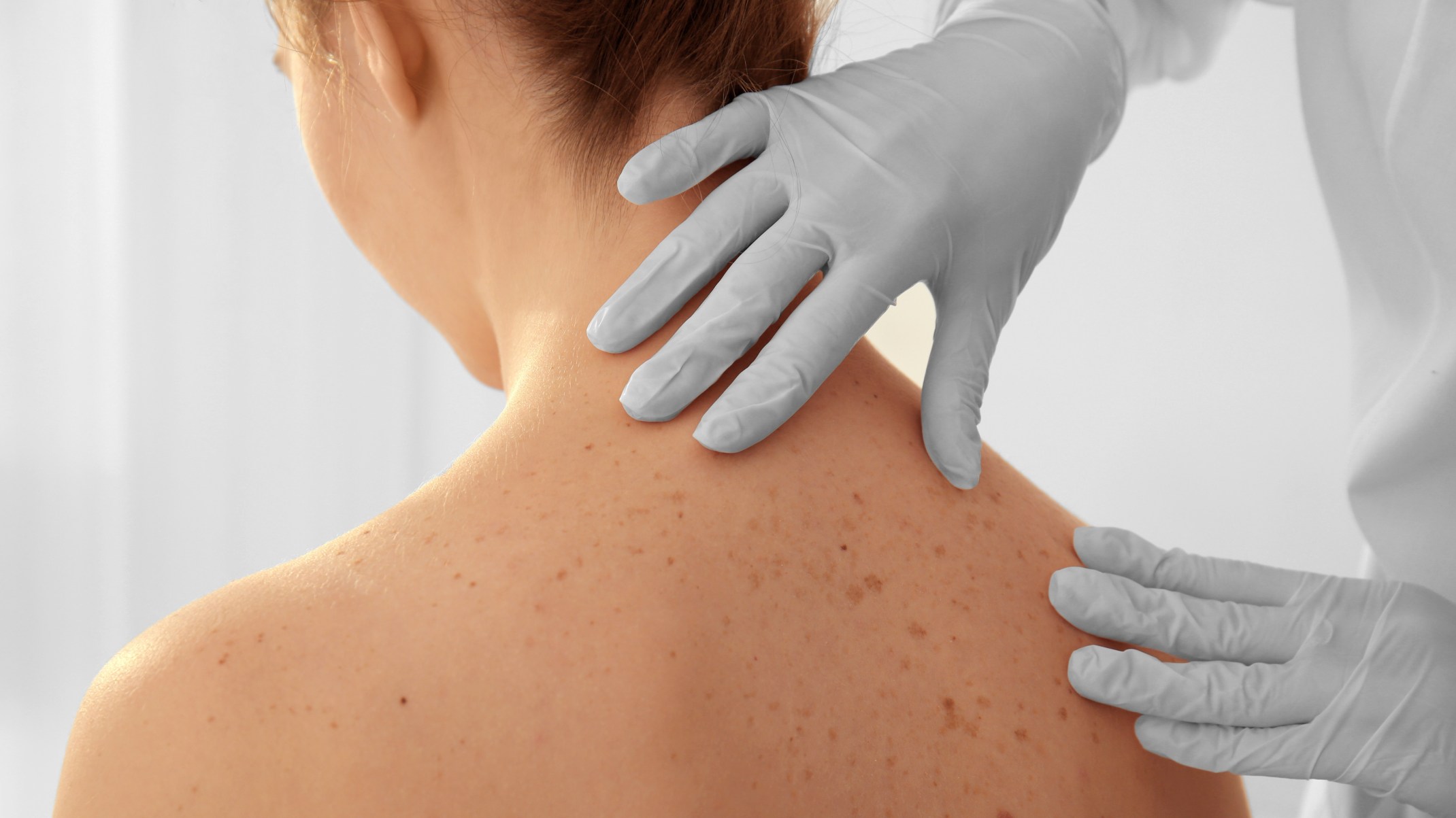- About
- Services
- Patient Information
- Specials
- Shop
- Locations
- Contact Us

Skin cancer is the most common of all cancers and accounts for nearly half of all cancers in the United States. More than 3.5 million cases of basal and squamous cell skin cancer are diagnosed in this country each year. The alarming uptick in the diagnosis of basal and squamous cell (non-melanoma) skin cancer means more and more people will require skin cancer treatment in the coming years.
As the fastest growing cancer in the world, about four million people are diagnosed with non-melanoma skin cancer–2.5 times more than all the other cancers combined. By 2020, experts predict that number will grow 50% to nearly six million; fueled by the Baby Boomer generation.
95%+ Cure Rate for Non-Melanoma Skin Cancer
Affiliated Dermatology now specializes in skin cancer treatment by using the specialized Superficial Radiation Therapy (SRT) technique. SRT will eliminate cancer from delicate and hard to reach areas. By delivering a precise, calibrated dose of Superficial Radiation Therapy that only goes skin deep, you can be safely treated right in our office for non-melanoma skin cancers.
Low-dose Superficial Radiation Therapy is virtually painless and effectively destroys basal cell carcinoma and squamous cell carcinoma, as well as the non-malignant tumor cells that cause keloids. Best of all, it doesn’t involve cutting, bleeding or stitching. With this technology, there is no need for anesthesia, no risk of infection or scarring, no need for reconstructive plastic surgery. Patients heal quickly and don’t have downtime or lifestyle restrictions following treatment.
If your provider has diagnosed you with non-melanoma skin cancer, SRT is a safe and effective non-surgical option for your treatment.
Depending on the treatment protocol your provider chooses for your particular case, you may need several treatments per week for up to several weeks.
Warm sunshine feels so good on the skin, but over your lifetime the cumulative effects of long-term sun exposure and other sources of ultraviolet light can lead to basal cell carcinoma (BCC). Nearly three million Americans are diagnosed with BCC each year–making it the most common type of all cancers. With the number of cases expected to grow, more people will undergo basal cell carcinoma treatment. Although it is the mildest form of skin cancer and rarely spreads to vital organs, rare aggressive forms of the disease can be deadly if not treated properly.
Over your lifetime the damaging effects of UV rays–”from the sun, tanning beds and other sources–can lead to squamous cell carcinoma (SCC). With nearly 700,000 new cases diagnosed each year, effective squamous cell carcinoma treatment is more important than ever. Left untreated, the telltale signs of SCC–scaly red patches, open sores that crust or bleed, and unattractive growths–can become disfiguring, even deadly if it invades tissue below the skin’s surface and spreads to the lymph nodes or other parts of the body.
For more information or to schedule an appointment at one of our several dermatology offices in Arizona, please contact us by calling (480) 556-0446 or leaving us a message with the contact form below.
Whether you wish to receive treatment for a skin condition or an aesthetic procedure, you can be assured you will be treated with professional and personal care by one of our skin care experts. Please feel free to call us at (480) 556-0446 or leave us a message online using our Contact Us form.
A full-service dermatology group offering services in general dermatology, skin cancer detection and treatment, Mohs surgery, aesthetics, and allergy. At our Valley-wide locations, we take pride in our dedication to help inspire and empower you to make educated, healthy decisions about skin care.
Follow Us Online:
 Scroll Up
Scroll Up